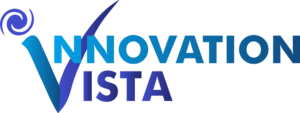“Artificial Intelligence: The Insights You Need from Harvard Business Review” is a curated collection of articles from thought leaders in both academia and industry, designed to provide a comprehensive overview of the implications of AI on businesses today and in the future. The book aims to demystify AI, going beyond the hype and alarmist headlines, to offer practical insights into how organizations can effectively implement AI in their operations.
One of the book’s most significant strengths is its accessibility. For readers who are not experts in AI, the text does a fantastic job of breaking down complex topics into understandable narratives. It addresses a broad range of subjects, from ethical considerations and job displacement to the practicalities of integrating AI into existing business structures. This multi-faceted approach is incredibly beneficial as it provides a more holistic understanding of the AI landscape.
A highlight of the book is its discussion on the ethical implications of AI. In a world where data privacy and ethical considerations are becoming increasingly important, this section is timely and offers actionable advice. Rather than simply warning of the potential dangers, the authors provide recommendations on how ethical considerations can be incorporated into AI strategies, making this part particularly actionable.
Another strong point is the book’s focus on organizational change. Many AI books focus predominantly on technology, but this compilation also addresses the human aspect and the organizational shifts required for successful AI adoption. This is a refreshing take because it acknowledges that implementing AI is not just about buying new technology but also involves a cultural and structural change within the organization.
However, one of the criticisms could be that the book sometimes lacks depth on certain topics. Given that it is a collection of articles, each piece has to be somewhat self-contained, which limits how deeply each can go into its respective subject matter. For those looking for an in-depth technical guide, this book may not suffice.
Additionally, although the book covers a wide range of industries where AI can be applied, it could benefit from more specific case studies to illustrate the points made. Real-world applications often offer the most valuable insights, and while the book does include some, more could certainly add value.
In summary, “Artificial Intelligence: The Insights You Need from Harvard Business Review” is an essential read for business leaders, decision-makers, and even laypersons interested in understanding the impact of AI on the business world. It offers a balanced, well-rounded view, making it an excellent starting point for those keen on grasping the multifaceted implications of AI. While it may not be a deep technical guide, it offers invaluable insights into the strategic, ethical, and organizational aspects of AI, making it a valuable resource in today’s rapidly evolving landscape.




